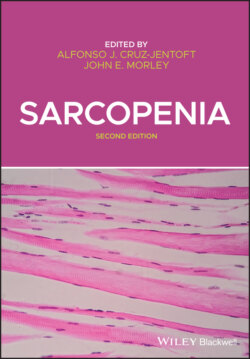Читать книгу Sarcopenia - Группа авторов - Страница 40
Mitochondrial proteostasis mechanisms
ОглавлениеA perfectly tuned control of the protein concentrations, quality control and recycling are essential for mitochondrial health. Such control is exerted by the ubiquitin‐proteasome system (UPS) and the autophagy–lysosome system. These catabolic mechanisms are modulated by the AMP‐Kinase and the FOXO transcription factor family, which inhibit MTORC1, the master regulator of protein synthesis and degradation. However, whether a dysregulation of this proteostasis mechanism leads to accelerated protein breakdown with aging, which results into a decline of muscle mass, or rather a failure of protein synthesis in replacing the degraded proteins, is currently unknown. Discovery proteomics studies in human muscle have found a substantial underrepresentation of ribosome proteins with older age, suggesting that failing anabolic mechanisms are probably preponderant. On the other hand, studies have found UPS‐related proteins and transcription factors overrepresented in quadriceps muscle of older compared with younger persons, while other studies failed to confirm these findings [83, 84]. In conclusion, the mitochondrial quality control system is altered at several levels. While it is reasonable to hypothesize that proteostatis mechanisms play an important role in the maintenance of integrity and efficiency of mitochondria, whether these mechanisms eventually contribute to age‐related sarcopenia remains unknown.
